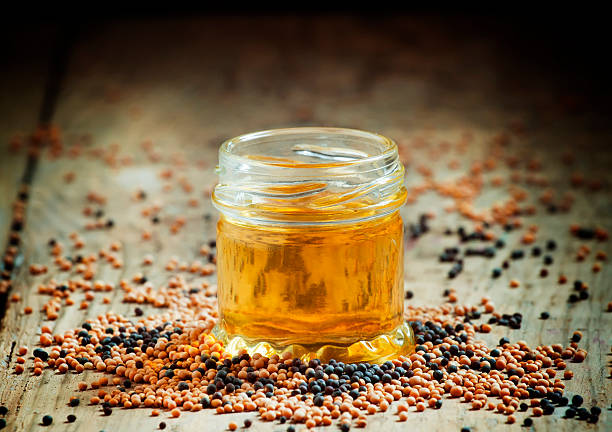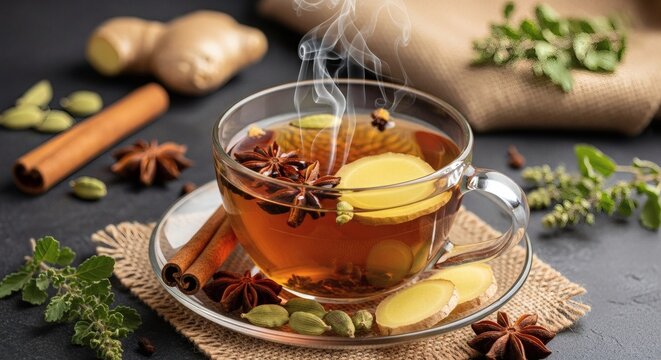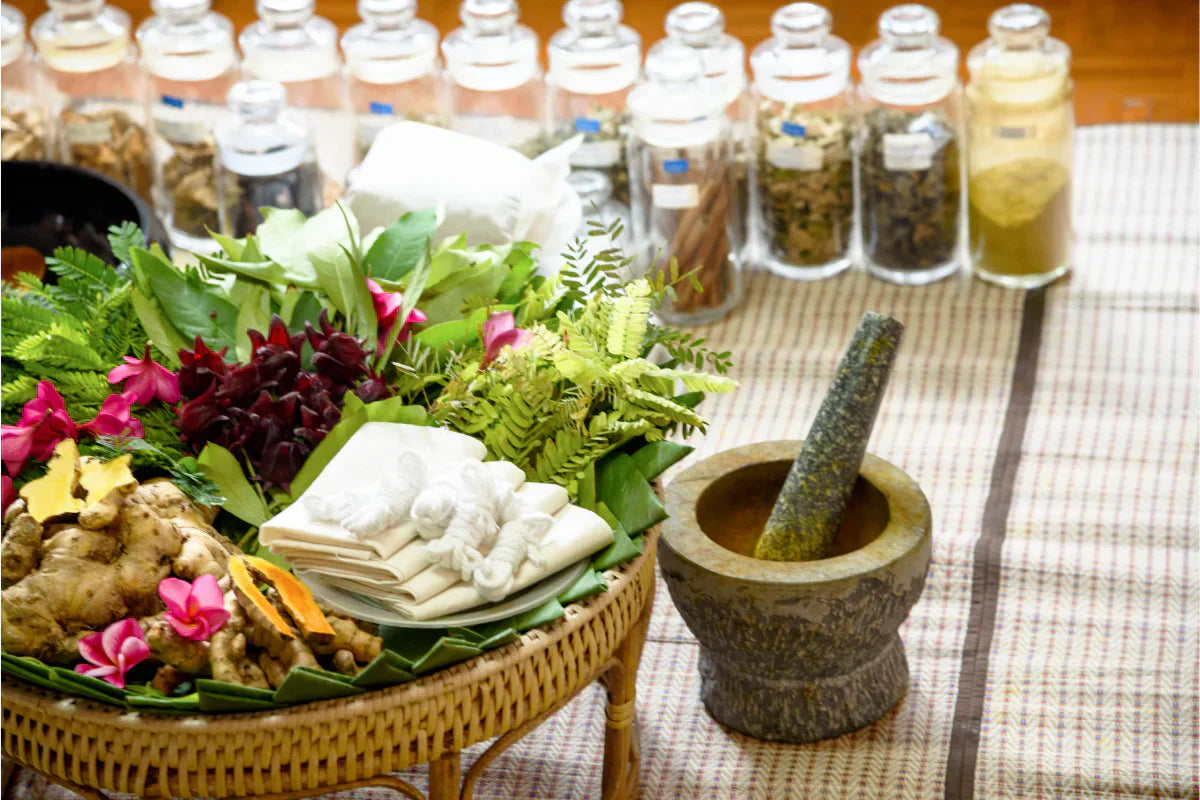Pollution and Dosha Imbalance: Why You Feel Tired and Congested

How modern pollutants disrupt Vata, Pitta, and Kapha, and what Ayurveda recommends for protection.
Air quality alerts, dust-laden mornings, burning eyes, and constant fatigue have become an everyday reality. But according to Ayurveda, pollution doesn’t just irritate the lungs, it disrupts your dosha balance, weakens Agni (digestive fire), and leads to Ama (toxins) building in the body. This is why many people feel tired, foggy, anxious, or congested during heavy pollution days, even with enough sleep and a healthy routine.
Pollution in Ayurveda is classified under Āgantuka Nidāna, external, non-natural factors that trigger disease. Continued exposure weakens immunity, vitiates the doshas, and resembles the classical condition of Dūṣīviṣa, a type of low-grade, slow-acting toxin that accumulates in the body over time.
What Is Pollution? An Ayurvedic Perspective
From an Ayurvedic lens, any external substance that the body cannot naturally digest, transform, or eliminate becomes a toxin. Modern pollutants, whether from air, water, soil, sound, or chemicals, disturb the doshic equilibrium and the body’s channel systems (srotas).
Types of Pollution and Their Ayurvedic Impact
-
Air Pollution: Increases dryness, mobility, and subtlety, aggravates Vata. Reactive gases irritate eyes/skin, Pitta imbalance. Particulates congest the respiratory system, Kapha vitiation.
-
Water Pollution: Heavy metals and nitrates impair Agni, disturb Pitta, and create Kapha-type edema and sluggishness.
-
Soil & Food Contamination: Agrochemicals disturb Pitta (inflammation) and Kapha (Ama accumulation), affecting skin, digestion, and metabolism.
-
Noise & Electromagnetic Pollution: Primarily aggravates Vata, manifesting as insomnia, anxiety, irritability, and fatigue.
How Pollution Creates Dosha Imbalance
Pollution easily penetrates the body’s microchannels (srotas), and its qualities dry, sharp, hot, heavy, or obstructive interact directly with Vata, Pitta, and Kapha. Air pollution (PM2.5, PM10, SO₂, NO₂) primarily triggers Vata–Pitta imbalances by drying the respiratory lining, promoting inflammation, and, with long-term exposure, increasing Kapha-related congestion. This leads to symptoms such as breathlessness, dry skin, irritation in the eyes and nose, headaches, restlessness or disturbed sleep, and sinus congestion. Over time, these pollutants contribute to inflammatory and neurodegenerative tendencies linked to disturbances in Rakta, Majja, and Rasa dhatus. Water and food toxins, on the other hand, tend to provoke Pitta-Kapha disorders, disturbing digestion, weakening the lymphatic and respiratory channels, and slowing metabolism. This results in Ama accumulation and symptoms like acid reflux, skin rashes, edema, sluggish metabolism, and heightened allergic responses.
Ayurvedic Daily Routine to Protect Yourself From Pollution
Nasya, Abhyanga & Herbal Fumigation
Ayurveda recommends daily nasya (2 drops of ghee or oil in each nostril), abhyanga (warm oil massage), and mild herbal fumigation using laksha, haridra, musta, ela, and other herbs. These practices strengthen the mucosal lining, calm aggravated Vata–Pitta, and act as the first protective shield against polluted air. Classical blends like mustard + sandalwood + ghee or tagar, kustha, laksha, vetiver, and guggulu were traditionally used to purify indoor air.
Agnihotra for Air Purification
Agnihotra rituals, performed with cow’s ghee, pipal wood, and guggulu, have shown a significant reduction in SO₂ and NO₂ levels. This aligns with Ayurveda’s emphasis on cleansing the environment to support respiratory health and overall pranic balance.
Nasal, Oral & Eye Cleansing Practices
Daily nasya prevents pollutant entry through the nasal passages. Oil pulling with sesame or coconut oil clears oral toxins and strengthens the mouth lining. Eye cleansing with rose-water-filled copper cups helps reduce burning, redness, and irritation caused by polluted air.
Pranayama & Herbal Steam (Swedana)
Slow breathing exercises and anulom vilom support lung capacity, oxygenation, and immunity. Herbal steam therapy with eucalyptus or warm compresses helps expel ama, strengthens the nasal barrier, and clears accumulated toxins from the respiratory channels.
Daily Detox Rituals & Herbal Drinks
Simple routines like washing skin and hair with neem water, drinking tulsi–ginger decoctions, or taking Triphala help purify the system. Teas made from fennel, cumin, coriander, and ginger improve digestion, reduce toxin build-up, and support the lungs.
Immunity-Boosting Diet
Include vitamin C–rich foods such as amla, guava, citrus, and berries; vitamin E from almonds and basil; beta carotene from leafy greens; and omega-3s from walnuts, chia seeds, flaxseeds, and ghee. Home remedies like turmeric with honey, basil–ginger juice, jaggery, neem leaves, and daily ghee help strengthen immunity and reduce inflammation caused by polluted environments.
Environmental Purification at Home
Air-purifying plants like bamboo, areca palm, peace lily, and money plant help reduce indoor toxins. Essential oils such as rosemary, thyme, tea tree, and lemongrass can cleanse the air naturally. Ayurvedic herbs like tulsi, neem, turmeric, haritaki, ginger, and pippali support respiratory purification from within.
Smart Lifestyle Habits
Wearing a mask outdoors, avoiding peak traffic times, and practicing yoga daily help reduce direct exposure to pollutants. These habits protect the respiratory system and prevent long-term toxin accumulation.
Rasayanas for Long-Term Resilience
Ayurvedic Rasayanas such as Brahma Rasayana and Maharishi Amrit Kalash nourish all tissues, build ojas, and strengthen long-term immunity. They provide deep rejuvenation and help the body recover from ongoing environmental stress.
Home Remedies for Pollution-Related Symptoms
-
Turmeric + Honey
A traditional rasayana that supports lung health, boosts immunity, and reduces inflammation. -
Tulsi–Ginger Decoction
Helps clear the lungs, ease congestion, and improve overall respiratory function. -
Jaggery
Acts as a natural cleanser for smoke and dust exposure; it helps soothe throat irritation and reduces oxidative stress. -
Neem Water
Boiled neem leaves can be used to wash skin and scalp, helping remove pollutants and purify the surface tissues. -
Spiced Warm Water
Sipping warm water infused with cumin, coriander, fennel, or ginger improves digestion, reduces ama, and supports respiratory health.
Ayurvedic Herbs and Remedies That Combat Pollution Effects
Respiratory-Supporting Herbs
-
Haritaki (Terminalia chebula): Helps clear respiratory channels, supports lung function, and removes accumulated pollutants.
-
Ginger (Zingiber officinale): Reduces inflammation, improves respiration, and aids in clearing mucus and toxins.
-
Pippali (Piper longum): When taken with honey, purifies the lungs, improves easy breathing, and strengthens respiratory immunity.
-
Triphala with Honey: Enhances immunity, balances all three doshas, and supports detoxification of pollutants.
Purifying Fumigation (Dhoomapana) Herbs
-
Burning herbs such as Laksha (Laccifer lacca), Haridra (Curcuma longa), Ativisha (Aconitum heterophyllum), and Haritaki produce smoke traditionally believed to purify toxic air and reduce airborne impurities.
-
Shobhanjan Mooladi Agad: Classical formulation used for managing health issues arising from polluted environments.
Rasayana (Rejuvenation) Therapy
-
Ashwagandha, Guduchi, Brahmi, and Shatavari act as adaptogens and tonics that restore damaged tissues (dhatus) and replenish ojas depleted due to oxidative stress and pollution.
-
These herbs show evidence of neuroprotective, hepatoprotective, and antioxidant benefits, helping counter pollution-induced cellular injury.
Panchakarma for Deep Detoxification
-
Vamana (therapeutic emesis): Eliminates excess Kapha and is ideal for removing pollutants acquired from water and soil.
-
Virechana (therapeutic purge): Clears Pitta toxins, including chemical and heat-generated pollutants.
-
Basti (medicated enema): Balances Vata and is especially beneficial for individuals exposed to EMFs, chronic noise, anxiety, or insomnia due to environmental stress.
-
Panchakarma therapies are both curative and preventive, especially when done seasonally or after high-risk exposure
Individualized Ayurvedic Program
-
When customized according to one’s prakriti (constitution) and vikriti (imbalance), Ayurvedic herbs and therapies significantly reduce the long-term burden of environmental toxins.
-
This holistic approach enhances immunity, supports tissue rejuvenation, and mitigates the cumulative impact of pollution on the body.
Pollution, Ama, and Why You Feel Tired
Air pollution doesn’t just affect the lungs; it disrupts oxygen flow, stresses the nervous system, and increases overall inflammation. In Ayurveda, this is understood as a weakening of Agni (digestive and metabolic fire), leading to the buildup of Ama (toxic residue), obstruction of the srotas (micro-channels), and imbalance in Vata–Pitta doshas. When these disruptions accumulate, the body struggles to maintain clarity and energy. This is why you may wake up with morning fatigue, a heavy or cloudy head, persistent brain fog, low stamina, disturbed sleep quality, nasal or chest congestion, and a sense of tiredness that lingers even after a full night’s rest.
How to Reduce Pollution Around You
-
Use indoor plants like bamboo, areca palm, and peace lily
These plants naturally filter toxins such as benzene, formaldehyde, and carbon monoxide while increasing oxygen levels indoors, creating a cleaner breathing environment. -
Place beeswax candles or salt lamps
Beeswax candles release negative ions that bind to dust and pollutants, while Himalayan salt lamps help reduce airborne irritants and promote a soothing atmosphere. -
Use air purifiers if possible
A good HEPA air purifier can trap PM2.5 particles, allergens, mold spores, and smoke residues, especially helpful if you live in a high-AQI zone. -
Avoid peak traffic hours
Pollution levels spike during early morning and late evening traffic. Reducing exposure during these times limits inhalation of harmful gases and fine particles. -
Wear a mask outdoors
A well-fitted N95 or N99 mask filters out fine particulate matter, providing essential protection during commutes or high-pollution days. -
Keep windows closed on high AQI days
When outdoor AQI worsens, closing windows prevents pollutant entry and helps maintain cleaner indoor air, especially during nights and early mornings.
FAQS
1. How does pollution affect dosha balance in Ayurveda?
Pollution disturbs Agni and doshas by drying, heating, or clogging the srotas. Air toxins affect Vata–Pitta, while contaminated water and food aggravate Pitta–Kapha and create Ama.
2. Why do I feel tired and congested during high pollution days?
Pollution weakens Agni, blocks srotas, and increases Ama. This disrupts Vata (fatigue), Pitta (inflammation), and Kapha (congestion), causing sluggishness, heaviness, brain fog, and poor-quality sleep.
3. Which dosha is most affected by air pollution?
Air pollution primarily aggravates Vata due to dryness and the movement of toxins. It also increases Pitta through heat and inflammation and elevates Kapha with prolonged congestion.
4. How can I naturally balance my doshas during pollution season?
Support Agni, follow dinacharya, use Nasya, Abhyanga, drink warm herbal teas, eat light meals, avoid cold foods, practice pranayama, and keep sinuses and digestion clear daily.
5. What are the best Ayurvedic remedies for pollution-related symptoms?
Nasya with ghee or Anu Taila, Tulsi-ginger tea, Triphala, Pippali with honey, turmeric-honey mix, steam inhalation, oil pulling, neem rinses, rasayana like Chyawanprash, and spiced warm water.
TESTIMONIAL
Dr Rajat Sahai, 45, Delhi
Particularly sensitive to respiratory issues since childhood, Rajat was having a tough time keeping up with his clinical practice. Frequent coughs, colds, wheezing and breathing problems were pulling him down. On days, he found it difficult to get out of bed in the mornings – feeling tired even after a night’s sleep.
His wife Rohini was worried and decided to consult a Vaidya, who recommended an Ayurvedic rasayana (rejuvenating formulation), Amrit Kalash, for him. Rajat was hesitant but agreed to try it since there was no let-up in the toxic environment, and nothing he was trying seemed to be effective. Also, the herbal formulation had undergone 80 clinical trials (he read up on it), so he felt it was safe to consume.
His Vaidya also introduced simple lifestyle changes, including herbal infusions, practising nasya daily (two drops of ghee in each nostril), and swedana or herbal steam therapy with eucalyptus oil.
It’s been a month since Rajat began his Ayurvedic practices, and he is feeling far more energised and has had no coughs or colds so far!
Popular Posts

Rheumatoid Arthritis in Ayurveda: Can Detox and Digestion Support Joint Health?
23 Jan, 2026Rheumatoid arthritis (RA) is a widely known joint condition, but did you know that Ayurveda trace...
Read more
Natural Ayurvedic Detox: Gentle Home Remedies
23 Jan, 2026What does natural detox really mean in Ayurveda? Essentially, this practice refers to the elimina...
Read more
Winter Weight Gain and Brain Fog: Ayurveda Explains Why
22 Jan, 2026What’s the trigger for winter weight gain? Why do we often experience brain fog, feel dull and he...
Read more




 Popular Read
Popular Read

















































